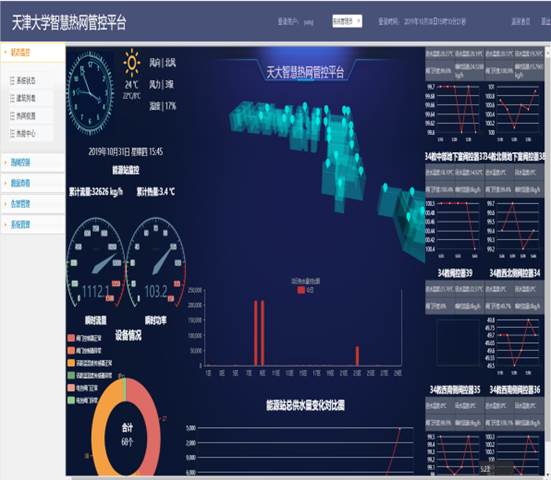On November 1st, the first day Tianjin, started its urban heating, Tianjin University implemented asmart heating network cloud platform on its Peiyangyuan Campus, aiming to reduce energy consumption by 30% this year.
Smart heating systems are no stranger to the public and many companies provide relevant services. The core concept of smart heating systems lies in regulating heating temperatures according to specific household needs.
“Currently, most smart water heating systems are designed for urban residential areas. In contrast, our platform is designed for more complicated comprehensive service areas like schools and industrial areas where heating temperature differs from one building to another, or even from one room to the next due to their different functions. For example, at Tianjin University, the temperature regulated for a classroom building might be very different from that for a dormitory building.” Prof. Xie Hui from Tianjin University’s Artificial Intelligence Research Institute who is in charge of the technical design stated. The platform has a whole new Machine learning algorithm designed into its simulation system.
The smart heating network cloud platform consists of three parts, a data collecting and analyzing system, a smart control system and a twin model simulation system.
The data collecting and analyzing system records the human activity within a building or even a household and sends the information to the twin model simulation system which simulates the data in real-time, combines it with relevant factors that will affect the room temperature like the climate, and then calculates the specific temperature needed for each building and each household for the coming day. Then the smart control system regulates the temperature accordingly. Associate Prof. Yang Junhong in charge of technical implementation thus introduced.
Presently, Tianjin University has applied this smart heating network cloud platform to some of its buildings, which is expected to save 30% in energy consumption. Lu Boxun, the Vice Director of Tianjin University’s Logistic Department hopes to achieve more, “For our next step, we will try to apply the platform to the heating terminal, namely every individual room on campus and provide a tailored heating plan. That will eventually save 60% to 70% energy.”

Tianjin University smart heating network control system
By Eva Yin
Editor: Doris Harrington






